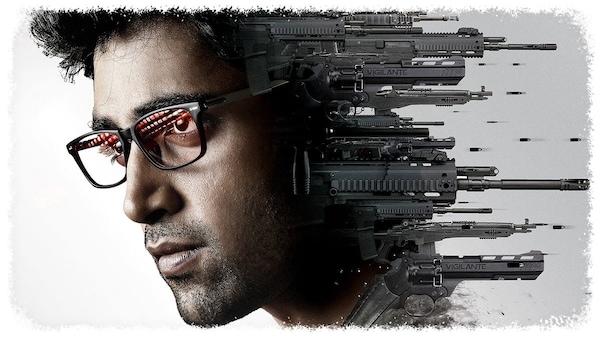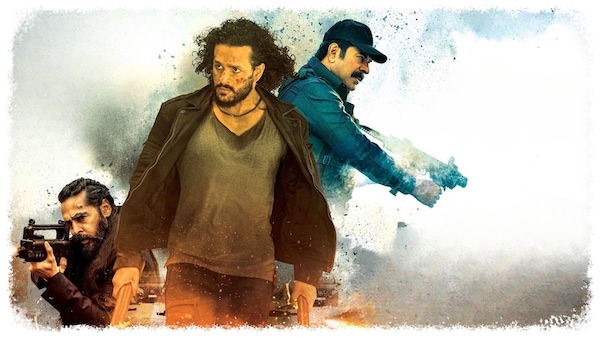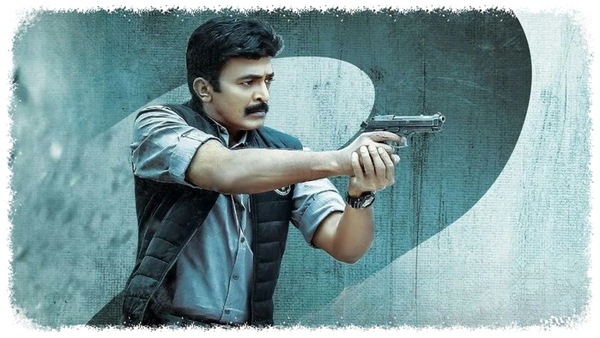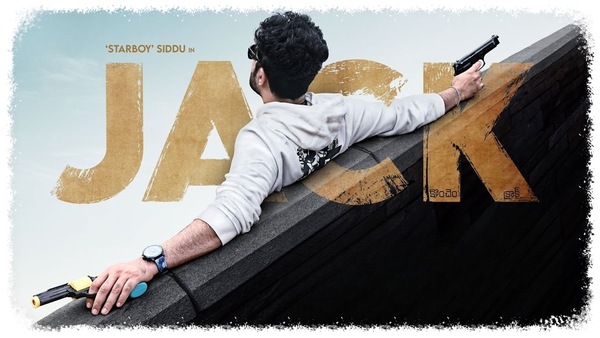How Telugu Cinema Got Caught In A Spy-der Web
Secret missions, counter-terrorism ops, and a one-man mission to save the nation — the modern spy has emerged as the quintessential action hero in Telugu films. But this wasn’t always the case.

Last Updated: 01.19 PM, May 27, 2024
This column was originally published as part of our newsletter The Daily Show on March 12, 2024. Subscribe here. (We're awesome about not spamming your inbox!)
***
TELUGU CINEMA’s love affair with spy films has fed a burgeoning and dominant subgenre in recent years. Part of the reason is the geo-political scenario in the subcontinent, and how well the genre itself complements the quintessential treatment of the hero’s quest — to find a purpose and save the day, by restoring peace and harmony in society.
The high stakes and the suspense, femme fatales and antagonists, global concerns and conspiracies, threats to national security and the future of the world itself — it is against these odds that one man (for it is usually a man) must triumph.
There’s little to speculate over why the spy genre has been romanticised over decades. It has almost every trope that makes a movie fun, whilst covering the two ends — fantasy and realism — of the action spectrum. And we’ve all grown up with or been exposed to the universal love for iconic spies (and franchises) like James Bond and Agent Ethan Hunt. Telugu cinema is no exception. The Superstar Krishna-starrer Goodachari 116, released in 1966 — just four years after the James Bond adventure Dr. No — introduced the spy genre in Telugu cinema, and over the next three decades, Krishna himself starred in numerous such spy thrillers including Agent Gopi, Goodachari 117, James Bond 777 among others.

However, the genre took a backseat during the ‘90s and noughties, due to the prevalent cinema of this period, where the idea of a hero, and who he was supposed to fight for, were evolving constantly. For instance, a predominant theme of the ‘80s and ‘90s was that of a hero who represented the working class and fought for their rights, while the richer classes represented greed and other big evils. Then, for a while, the hero became a messiah for the downtrodden who would banish their oppressor — a theme that resulted in some of the biggest hits of the late ‘90s to mid-2000s. Rapid urbanisation resulted in the emergence of yet another kind of hero: the man who is on a mission to find himself, and ends up being a saviour to the residents of some far-flung village.

Sometime in the last decade or so though, the issues that Telugu films have foregrounded have grown larger in scope. Geo-political tensions, covert operations led by intelligence agencies, global issues like cross-border terrorism, the illegal weapons and narcotics trade, among others, have found their way into films from real life. The fact that several such developments are deeply embedded in our collective consciousness has led to redefining what a hero can also do on screen — he might be speaking in Telugu, but his mission is to protect the country from external threats.

Voila! A new hero is born — one who is suave, intelligent, loaded with weapons and a clearly defined purpose, plus a malevolent force to vanquish. Such narratives generally have the hero oscillating between two aspects. On the one hand, it’s the protagonist’s personal equation with other characters that is expected to resonate with Telugu audiences. On the other is his no-holds-barred mission that is truly global. Language, culture and jurisdictions are no barriers for him, because he’s a secret agent who answers only to the highest authority of the country.
In recent years, films like Goodachari, PSV Garuda Vega, Chanakya and Wild Dog, among several others, have dabbled with the spy genre, where the hero is part of an intelligence agency and he is sent on a mission. This has corresponded with rising consumption of international titles in the espionage genre on streaming platforms: The Night Agent was the most watched series on Netflix globally; The Gray Man and Red Notice reportedly drew huge numbers in India; and Apple TV’s Slow Horses also proved popular. Meanwhile, Hindi series like The Family Man, Special Ops, The Night Manager and Tanaav had a ripple effect on regional content too, with almost every platform trying to replicate the success of such shows in as many languages as possible.

Adivi Sesh-starrer Goodachari and Praveen Sattaru’s PSV Garuda Vega are two of the most talked about spy thrillers in Telugu cinema in the past decade. The success of Goodachari has led to a sequel, which is currently under production, and Praveen Sattaru went on to direct two other thrillers — Gandeevadhari Arjuna and Ghost — that dealt with espionage and impossible missions. However, not all films have been successful. Recent films like Akhil’s Agent, Nikhil’s SPY, didn’t quite click at the box-office; of course that hasn’t soured Telugu cinema on the genre. Vennela Kishore’s Chaari 111 is modelled on the lines of Rowan Atkinson’s Johnny English, whereas Siddhu Jonnalagadda’s upcoming film, Jack, is also said to be an entertaining take on the genre.

The success of the Bond, Mission: Impossible and Bourne franchises in Hollywood has come at a cost; every now and then, the direction of the franchise and what the heroes are fighting against have been the subject of scrutiny. Cold War politics, a mainstay in the James Bond franchise until the early ‘90s, was swapped with rouge entities, crime syndicates, megalomaniacs and lone wolves with plans to destroy international peace. The current wave of spy films that have become a mainstay in Telugu cinema largely have counter-terrorism ops as their backdrop, perhaps to create a sense of urgency right at the onset.
As India continues to occupy a significant role in world affairs, perhaps screenwriters and filmmakers too will find inspiration in global events to give their hero his two essentials — a mission worth dying for, and the licence to kill. After all, everything is fair in the race for guns, guts and glory.
